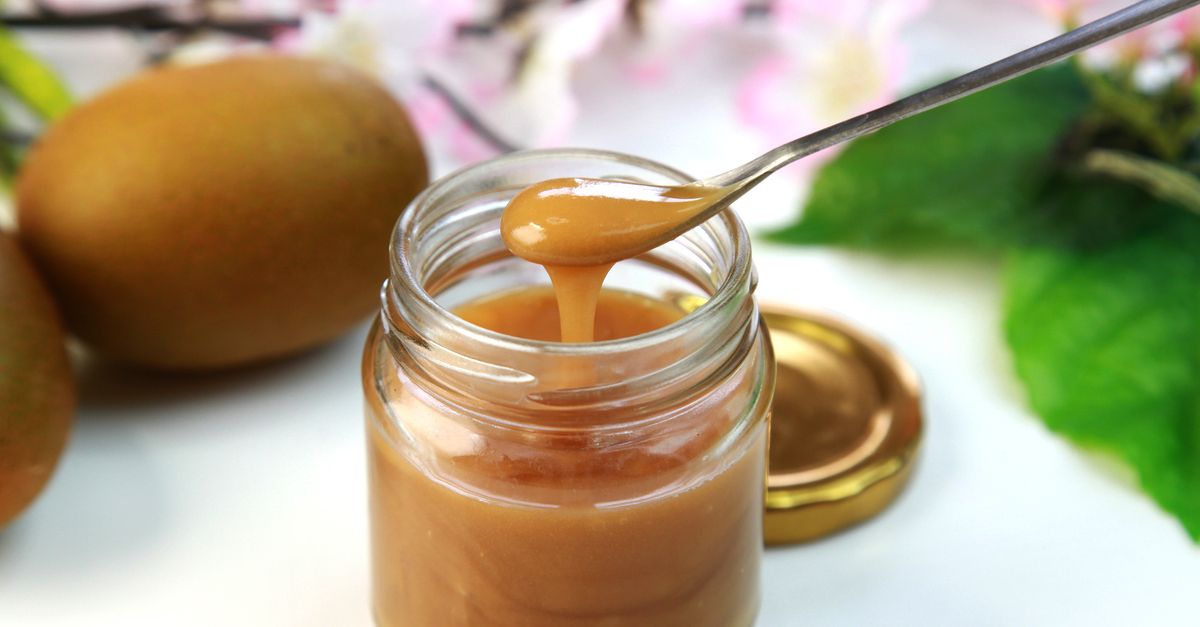Despite celebrity endorsements from Gwyneth Paltrow and other actresses-turned-lifestyle brands, humans have used honey as a treatment for skin ailments and infections for thousands of years. Early practitioners may not have known why, but, later scientific discoveries elucidated one of the primary reasons behind honey’s success as an antiseptic — it naturally produces hydrogen peroxide when diluted, per a 2014 review paper:
All undiluted raw honeys restrict microbial growth due to their osmolarity and acidity. On dilution many honeys produce low, sustained levels of hydrogen peroxide by the oxidation of glucose by glucose oxidase.
Since 1989, however, a growing body of work has suggested that one particular kind of honey called manuka honey, found in New Zealand and Australia and derived from bees that feed on the manuka bush (Leptospermum scoparium), appears to have additional antiseptic and antibiotic properties likely attributed to something beyond the hydrogen peroxide.
Later research, beginning in 2008, determined that the main compound responsible for this increased antimicrobial activity is a chemical called methylglyoxal (MGO), a byproduct of the bee’s honey production. Some manuka honey contains up to 100 times more MGO than other honeys.
It is against this backdrop of scientific research that viral news stories and specialty honey distributors frequently extol the virtues of manuka honey. Yet, exaggerations are frequent. In viral post from January 2017, the website Healthy Holistic Living made this claim of the honey:
Not all honey is created equal. While the benefits of raw, unprocessed honey have been well-documented over the centuries, Australian researchers have found one type of honey, called Manuka honey, to be better than all known antibiotics.
That story, as well as a similar post on the missed-bee-pun-opportunity website bewellhub.com from October 2017, highlights research from October 2010 and January 2015 (not exactly breaking science news) to suggest manuka honey has potential to avoid antibiotic resistance. They claim it could fight some strains of Staphylococcus aureus, which can develop marked resistance to antibiotics in the form of MRSA, or methicillin-resistant Staphylococcus aureus:
In the aforementioned studies, Australian researchers found that the honey killed every bacteria or pathogen it was tested on [...]. The honey can be applied topically to help fight against infections of the skin, cuts and insect bites, or taken internally.
The most exciting difference with the manuka honey that was tested is that none of superbugs killed by the honey were able to build up immunity, a common problem with today’s antibiotics.
The older 2010 study, published in the European Journal of Clinical Microbiology & Infectious Diseases, is a preliminary, but not definitive, suggestion that treating wounds with honey does not result in honey-resistant bacteria, but this research was not performed on human test subjects, and was instead performed using the tightly controlled conditions of a petri dish:
Two cultures of bacteria from reference collections [...] and four cultures isolated from wounds [...] were exposed to sub-lethal concentrations of manuka honey in continuous and stepwise training experiments to determine whether the susceptibility to honey diminished.
Reduced susceptibilities to manuka honey in the test organisms during long-term stepwise resistance training were found, but these changes were not permanent and honey-resistant mutants were not detected. The risk of bacteria acquiring resistance to honey will be low if high concentrations are maintained clinically.
While it is accurate to suggest this study showed that manuka honey "killed every bacteria or pathogen it was tested" on, it would be inaccurate to suggest that evidence from two specific strains of bacteria and four heterogenous samples taken from wounds suggest broad superiority over antibiotics in all cases.
In fact, much of the current research on manuka honey is focused on the possibility that, medically, it could be used in combination with other antibiotics, primarily for hard to fight infections like MRSA. The more recent 2015 study highlighted in the bewellhub.com post and published in the journal Frontiers in Microbiology, primarily addressed that issue looking at a variety of Staphylococcus infections:
We demonstrate that manuka-type honey combined with [one of four tested] antibiotics frequently produces a synergistic effect. In some cases when synergism was not observed, there was a significant enhancement in antibiotic susceptibility. Some strains that were highly resistant to an antibiotic when present alone become sensitive to clinically achievable concentrations when combined with honey.
However, not all of the S. aureus strains tested responded in the same way to these combinational treatments. Our findings support the use of NZ manuka-type honeys in clinical treatment against S. aureus-related infections and extend their potential use as an antibiotic adjuvant in combinational therapy.
This study, like the one discussed before, was done using cultures, and was not performed on actual human subjects, as well. In a 2014 paper reviewing the available science for manuka honey as a topical treatment for infections, the authors suggest that there is certainly potential for manuka honey, but more human trials will need to be conducted to get a clearer picture and gain widespread acceptance:
Despite accumulating evidence of the efficacy of manuka honey in inhibiting wound pathogens in vitro, substantive in vivo data are required because practitioners influenced by evidence-based medicine are likely to need objective clinical evidence before they risk adding manuka honey to their armament as a first-choice topical treatment. Since laboratory studies carry little weight in the hierarchy of evidence, suitable funds must be found to support clinical investigation. An effective topical antimicrobial could have a significant impact on the fight to limit the spread of MRSA in healthcare establishments.
While there is growing evidence to suggest an important role for manuka honey for wound care and recalcitrant infections, the research is too preliminary and largely untested on humans to truly know its complete potential, and it is certainly too preliminary to suggest it is “better than all known antibiotics.” As such, we rank this claim as mostly false.

